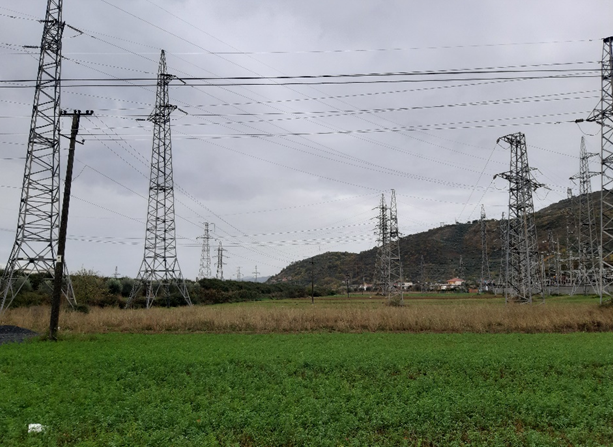MARJO BRAKAJ
On Tuesday November 18th, representatives of European Union countries failed to reach a consensus on a framework for the accession talks with Albania and North Macedonia. This will delay the first Intergovernmental Conference, which marks the official start of the accessions talks. MP Arben Pëllumbi, who is also the Organizational Secretary of the Socialist Party of Albania, “blamed” North Macedonia, arguing that Bulgaria’s veto on North Macedonia penalized official Tirana for the negotiations. But do these statements stand?
Arben Pellumbi, the SP MP, who also holds the position of Organizational Secretary of the Socialist Party, stated during an interview on “Vizion Plus” on November 20, that Bulgaria’s veto on North Macedonia penalized Albania’s negotiations with the European Union.
The government has completed its assignments… However if North Macedonia’s progress was hindered because of us last time, now it seems as if we are being hindered by North Macedonia, just because Bulgaria was now reminded out-of-the-blue to bring up an issue, which it should have brought up in other times– stated Pëllumbi.
But does the statement of the SP official stand?
Albania and North Macedonia could not get a date regarding the framework of the accession talks, which would thus pave the way for the First Intergovernmental Conference. As mentioned by the representative of the German presidency, Minister of State Michael Roth, North Macedonia was penalized by Bulgaria.
We must distinguish between bilateral conflicts, the points of friction still existing between Bulgaria and North Macedonia on the one hand, and the EU as an entirety, on the other. This is not the momentum for yet unresolved bilateral problems to arise at European level– said Roth.
According to Bulgaria, North Macedonia must acknowledge that it has Bulgarian origins and that Macedonian is a Western Bulgarian dialect. North Macedonia insists with relatively strong anti-Bulgarian tones on its national independence. As North Macedonia refuses to do so, Bulgaria is blocking the start of accession talks between Skopje and the EU.
But on the other hand, the “hindering” of Albania, as confirmed by senior officials of the European Union came as a result of its own internal factors and not because of North Macedonia.
Firstly, the Constitutional Court must be in place, and secondly, the new election law should be adopted. However, the reasons for optimism as this will be happening soon, are a tough issue– said German State Minister for Europe Michael Roth.
What were the factors that penalized Albania?
The assumption of the Presidency of the European Council by Germany on July 1 was viewed with optimism by officials of the ruling majority for Albania’s EU integration. On the second week of November, German State Minister for Europe Michael Roth asked EU member states to approve the opening of negotiations with Albania and North Macedonia, but did not set a date for the First Intergovernmental Conference. On the other hand, what seems to be diminishing Albania’s chances for membership is the non-fulfillment of the conditions posed by the Bundestag as well as the new line for EU integration approved in October.
Currently, the Constitutional Court cannot meet the quorum for adjudicating cases in terms of their merits, because there are only 4 members in office.
The electoral reform could also become a problem, as the majority re-voted the amended Electoral Code in the Assembly, although President Ilir Meta requested the government wait for the opinion of the Venice Commission. The EU reiterated the same advice to the government.
Also, the Netherlands still has reservations about opening negotiations with Albania. The country demands that Albania first assures a functional Constitutional Court and adopts the law on media, before getting in talks about opening of negotiations. The Dutch have posed no issues with North Macedonia. During a conference with journalists two weeks ago, Prime Minister Edi Rama denied that there still are open terms. According to him the negative attitude of the Netherlands related to the parliamentary elections 2021.
Albania’s position may be aggravated by accusations of vote buying and selling!
MEP David Lega, Rapporteur for Albania in the European Parliament and representative of the EPP, announced through a message on “Twitter” that immediately after the end of the meeting of the ministers for European Affairs on November 18, he alongside two other MEPs requested answers from EU High Representative Josep Borrel as to why the European Commission did not mention in its report “vote buying” in Albania as an important issue not only for the EPP, but for the EU as well.
Today we asked Josep Borrel why the European Commission did not mention vote buying in the 2020 report. Commencing investigations against suspects of vote-buying is an essential condition for the EU and not just for the EPP. As a monitoring reporter in Albania, I will always focus on the rule of law and democracy. Vote buying is a serious problem for democracy and cannot be accepted from an EU candidate country -the MEP wrote in his published official document addressed to Borrel.

MEPs’ letter to European Union officials
As confirmed by the highest officials of the European Union, the obstacles related to Albania’s negotiation process with the EU are not a result of the events in North Macedonia or Bulgaria; but rather a result on the country’s internal developments.






